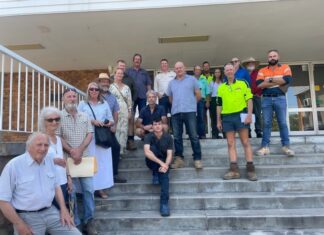Community divided over flexible school hours in Southern Downs

Digital Edition
Subscribe
Get an all ACCESS PASS to the News and your Digital Edition with an online subscription
Water mining plan ‘hanging over our heads’ for years
Frustrated residents are calling on the council to reject a controversial water mining plan they said threatened farms, water and their way of life...








